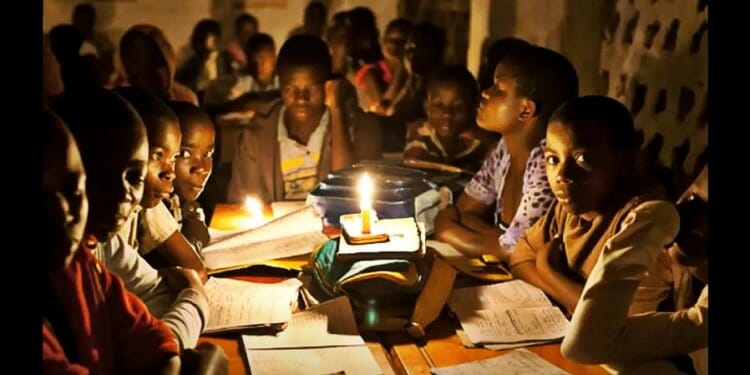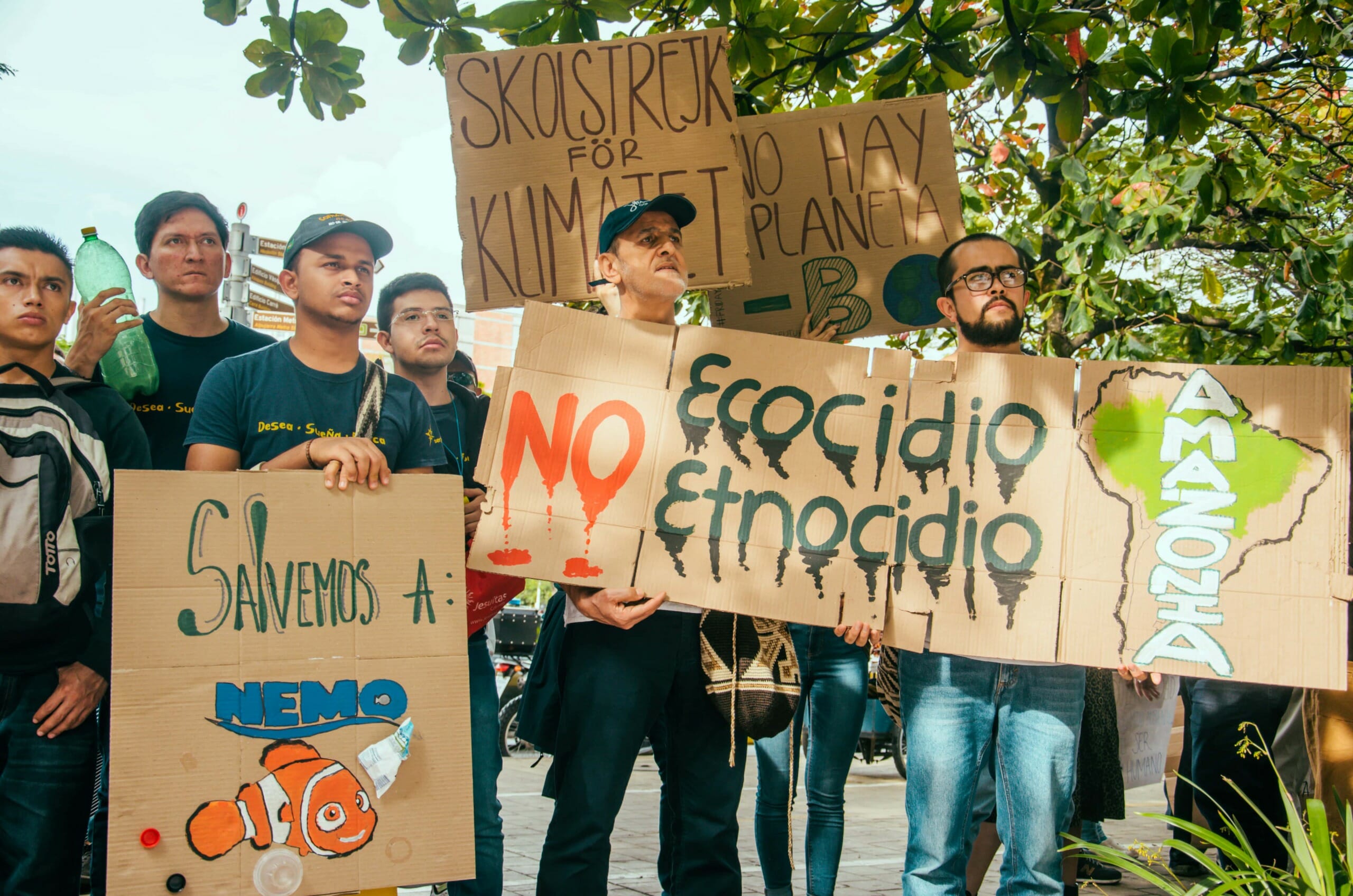This is a “different” kind of a column, a thought experiment, one which is not a prediction of our future as I am an optimist. Here I attempt to imagine an extreme situation: Consider the possibility of the confluence of world-changing mega-events which theoretically could affect life as we know it. Accelerating climate change, cyber warfare, new novel pandemics, any or all could dramatically alter modern society. Those who are enjoying all the amenities of civilization, the “connected” today, could find themselves the losers compared to the poor and “disconnected”. If it should happen it could redefine the very notion of “survival of the fittest.”
The Context: Modern “connected” lifestyles vs. “disconnected” traditional ones
In the year 2022 one can identify two separate existences living on the same planet. For one group – call them the “modernists” or the “connected” – everyday living is defined by the internet, laptops, smartphones, electricity, decent housing, personal and public modes of transportation, reliable water and sewerage, access to levels of education, which are all pretty much taken for granted. When one or another fails, there is instant reaction and demand for resolving the problem.
For the other group – call them the “disconnected” or “survivalists” – everyday life is dramatically different: these are people living in deep poverty in rural areas or are the urban poor, without basic infrastructure such as electricity, means to access drinkable water, safe waste disposal, primary health services, dependable food, or shelter from nature’s wrath; for instance, across Sub-Saharan Africa, a staggering 72% of those living outside cities and towns have no access to electricity.
These people live as many did in human history, and are found now principally in large parts of the developing world, in remote rural areas or urban slums. Indeed, the poor in poor countries and the poor in rich countries have more in common with each other than the poor and rich have in common in their own country.
The prevailing view, with some justification, is that the modern world is a far better place. But there should be a caveat, namely “So long as the systems function.” Once there is no electricity, the internet is shut down, hygiene is compromised, no fuel for transport, home heating, or cooking, is this still the case?
Historical Perspective: How the “more civilized” fared when confronted with a strong, traditional group
Perhaps history can provide some insight into what can happen when a more civilized society is challenged and subsequently overwhelmed by another more ruthless, and either militarily or mentally stronger group.
In the early years of the 13th century, Genghis Khan united Mongol tribes and created an army that drove into the heartland of Central Asia. Moscow was destroyed in 1238, Kyiv in 1240, the latter one of the largest cities in that world at the time, then the Mongols went further into Europe, South Asia, and China. It performed similarly in 1258 successfully invading Baghdad, a city then thought to be the capital of the world and a global center of learning and luxury.
In sum, across much of the known world, cities ranging from Beijing, Palembang, Kyiv, Baghdad, and Constantinople were conquered by ones with no written language (but accomplished numeracy), ate their food often uncooked, had no urban civilization or history—and followed a philosophy under which conquest was preeminent. The Mongols’ success was in large part because of their total reliance on their fearlessness (and horses), the creeping decadence of urban civilizations and elites.
Ibn Khaldun (1332 – 1406) already formulated the historical premise of how the uncivilized and unsophisticated tribes from the mountains – always ‘poor’ in urban terms – would come down to the ‘civilized’ agricultural (or, later, industrialized) cities and centers of wealth and luxury and conquer them.
Those city people were originally from the mountains themselves, but over time grew soft, even decadent. Once the mountain people conquered cities, they, in turn, became ‘civilized,’ richer and soft. They then found themselves overwhelmed by the next generation of those living in the mountains, a cycle that has occurred in many places and even in modern times.
Considering the Present
One can argue that modern-day Afghanistan, now controlled by the Taliban, is such an example, albeit with the difference that it is propelled by a variety of religious fundamental underpinnings. Taliban fighters are primarily mountain people, and ‘poor’ by a modern standard. They overwhelmed an urban educated and secular populace – the connected or modernists – that had supported a decadent government and military, coupled with their reliance on outsiders to survive.
There are other imperfect similar recent examples such as neighboring Iran, which last century was progressing on many levels, but was derailed when a corrupt Shah was overthrown and the country largely turned away from a modernization path, at least for many years.
Hypothesizing the Future: The “connected” have an Achilles’ heel
Today, many countries are a combination of major urban centers which are disconnected from large segments of their rural populations. The densely populated urban centers are totally dependent on modern technology, and these “connected” city dwellers might not be able to cope in the face of total shutdown of the physical and non-physical infrastructure.
 But what of those rural poor or the urban very poor? There are many of them; consider that about 9.2% of the world, or 689 million people, live in extreme poverty on less than $1.90 a day, according to the World Bank. In fact, if electricity was no longer available, their lives would be barely affected.
But what of those rural poor or the urban very poor? There are many of them; consider that about 9.2% of the world, or 689 million people, live in extreme poverty on less than $1.90 a day, according to the World Bank. In fact, if electricity was no longer available, their lives would be barely affected.
They may be the “disconnected” but they are the real “survivalists”: Since their daily lives have minimal if any reliance on electrical grids, reservoirs, pharmaceuticals, or health services they would continue as they had been, looking more to family and community to eke out an existence, the social pillars many of the “modernists” have largely abandoned.
A complete and long-term shutdown of key services in urban settings around the world is unlikely to come to pass. But it is not as far-fetched as one might think or hope.
We know that cyber weapons, artificial intelligence, and malware technology exist capable of disabling urban infrastructure from afar. Already it is in the hands of many, and there are current or potential confrontations which in the near term threaten, whether between Russia and the United States over Ukraine or with the People’s Republic of China over Taiwan – and there are many hotspots worldwide.
If one or another State or non-State actor should choose to unleash available powerful destructive tools, then while “modernists may have the edge today, but what about tomorrow”? Are the “survivalists” going to be the real winners?
Editor’s Note: The opinions expressed here by Impakter.com columnists are their own, not those of Impakter.com. — Featured Photo: Children studying by candlelight – screenshot from Africa Lately video: 10 Top African Cities with Electricity Access









